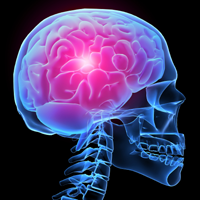Article
Empathy for Pain Lies in the Same Brain Regions as First-Hand Pain
Author(s):
Pain is not fully understood; and while that isn't a revelation, the way that it connects to pain empathy in the brain is noteworthy. Similar brain regions activate during both phenomena, potentially opening the door for researchers to gain that understanding.

Pain is not fully understood; and while that isn’t a revelation, the way that it connects to pain empathy in the brain is noteworthy. Similar brain regions activate during both phenomena, potentially opening the door for researchers to gain that understanding.
Being empathic for someone else’s pain comes from personal pain experiences. The brain region which activates during first-hand pain overlaps with area that activates during empathy for pain. But does this mean that that these shared activation sites use similar neural functions? Researchers from the University of Vienna set out to investigate.
Using 102 participants, the team used the novel approach of placebo analgesia to better understand the relationship between pain and empathy for pain.
“Only this trick enabled us to conclude with higher certainty that empathy relies on stimulation,” Claus Lamm, from the Department of Basic Psychological Research and Research Methods at the university, said in a news release.
Participants taking the placebo analgesia reported reduced pain empathy. This correlated with the MRI results showing less engagement in the anterior insular and midcingulate cortex — the brain region previously believed to activate for pain and empathy for pain.
“These brain regions are well-known major hubs in the neuronal empathy network. In addition they are central parts of the endogenous opioid system, which is involved in pain regulation,” Lamm, a psychologist, verified.
The researchers went a step further in a follow-up study to examine the involvement of the opioid system in the placebo-empathy phenomenon. Naltrexone, an opioid antagonist, was administered to 50 participants. The psychopharmacological manipulation blocked placebo analgesia and normalized pain for empathy, suggesting that neural responses and neurotransmitter activity is associated with pain empathy.
The research presents more understanding about not just pain, but emotions in general. According to the report in the Proceedings of the National Academy of Sciences, the findings provide strong evidence that the opioid system is involved in placebo-empathy. A key takeaway from the duo of studies is that empathy occurs from personal experiences, perhaps through an underlining neural response.
“The present results show that empathy is strongly and directly grounded in our own experiences — even in their bodily and neural underpinnings,” Lamm continued. “This might be one reason why feelings of others can affect us so immediately – as we literally feel these feelings as if we were to experience them ourselves, at least partially. On the other hand, these findings also explain why empathy can go wrong – as we judge the feelings of others based on our own perspective.”
One question that remains, and may be the next step in this research, is if the involvement of the opioid system is caused by empathic processes or if it only occurs because of personal experience with pain.





